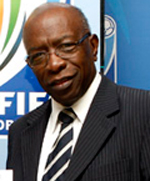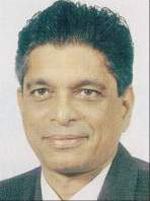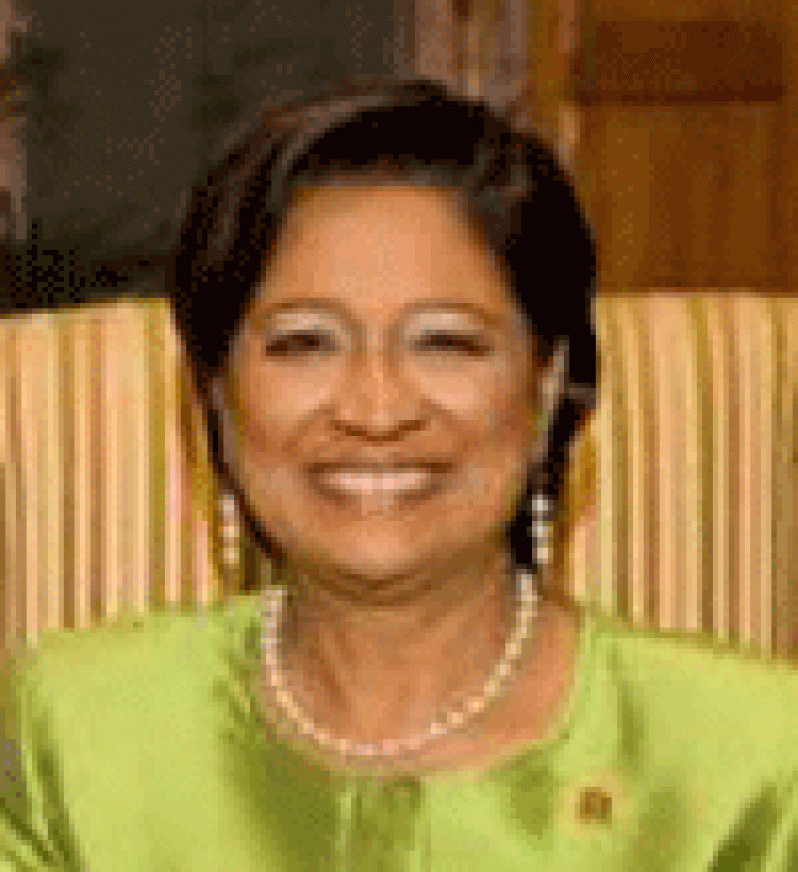—after UNC internal poll
Analysis by Rickey Singh
THE MESSAGES coming out of last Saturday’s internal elections for the United National Congress (UNC)—dominant party in the People’s Partnership Government—have been as varied as some post-election media commentaries. Amid the political gripings, the sound of laughter from victors and the anguish double-speak of losers, there have come encouraging spins on the election results from current Works Minister Jack Warner, and also Ralph Maraj, a former Foreign Minister in a People’s National Movement administration.
Works Minister Jack Warner, and also Ralph Maraj, a former Foreign Minister in a People’s National Movement administration.
No stranger to personal challenges—whether in football or party politics—Warner had kept faith with his UNC’s constituents for a decisive re-election as chairman of the party. And he got it—above all odds.
At the previous party elections in January, 2010. Warner was quite vigorous in helping Kamla Persad-Bissessar—now Prime Minister– to decisively defeat the party’s founder-leader, Basdeo Panday, who has been substantially, if not irretrievably, politically marginalised.
As his primary challenger for chairmanship, Ashvani Mahabir, was licking his wounds over a humiliating defeat, Warner was stoic in the central message he chose to convey this past weekend to his supporters and, by extension, that multi-ethnic, multi-cultural CARICOM  nation in general.
nation in general.
Emerging with the single largest bloc of votes—12,656
(3,461 more than he secured at the January 2010 election)—Warner fingered defeat for what he called the “racial bogey” as he commended the maturity of voters for allowing “performance” to trounce “race”
He was emphatic in declaring, and without resort to facile race-hyphenation, that “what the results show is that the racial bogey is on its way out. Gone are the days when Indians would vote for an Indian and Africans will vote for an African. That is out. People did not look or judge me by the colour of my skin or my hair; they voted on performance not race…”
Well, it may not be quite as altruistic as underscored, but there is no doubting the fact that with racial influences very much at work in the body politic, a conscious decision had been made to give Jack his ‘jacket’ as a performer in the cabinet of the first woman Prime Minister of this country, heading a People’s Partnership administration.
influences very much at work in the body politic, a conscious decision had been made to give Jack his ‘jacket’ as a performer in the cabinet of the first woman Prime Minister of this country, heading a People’s Partnership administration.
The Express View
In an editorial on Tuesday, the Trinidad Express had a pertinent message of its own, and one that Prime Minister, Persad-Bissessar would do a lot of good for herself, party and government to pay heed to, by ensuring an objective assessment of the realities of the just-concluded second internal UNC election in just over two years.
“In the context of the UNC election results”, the Express editorialised, “Warner has been returned to the party chairmanship with the confidence to push back against encroachments on his authority within the UNC power structure. Exactly what the implications of this re-alignment of power means, only time will tell…
‘One source of problems is likely to come from within where senior members now have to face a resurgent Warner, armed with a ringing endorsement from the party’s rank and file….”
And what of the post-election ‘spin’ that came from Ralph Maraj, a former high profile cabinet minister in People’s National Movement administrations headed by Patrick Manning?
He thinks that “race will eventually lose its potency in the politics of Trinidad and Tobago. Fortified in this view, he has cited the examples of 2007 when, as he said, “tens of thousands of supporters” departed from the UNC for the “new politics of the cosmopolitan Congress of the People (COP—then led by now Finance Minister Winston Dookeran).
Maraj’s reminder
Secondly, in the reasoning of Maraj, in 2010 “many thousands of disillusioned traditional PNM supporters had contributed heavily to the party’s huge defeat” by the People’s Partnership…Now in the UNC elections, Jack Warner trashed his main challenger, of East Indian origin, who was clearly the candidate of the leadership of the party…”
Ironically, quoting earlier national election campaign messages as articulated by former Prime Minister and UNC leader, Panday, Maraj has stressed that “race will not give you (voters) grocery, roads, hospitals, or protect you from crime…”
As Maraj concluded on the high note “Race clearly has not delivered to the die-hard (electoral) bases of either the UNC or the PNM. Both continue to suffer in this country”, and he warned that “both are ripe for revolt…”
Readers should not associate this perceived “revolt” with any strategy linked to extra-parliamentary politics, but more likely a consistent crossing of traditional ethnic boundaries based on objective assessments rather than the emotional appeals of race.
Altogether, therefore, there seems to be a healthy political stirring in that CARICOM member state which will celebrate its 50th anniversary of political independence this coming August and parades the significance of its national motto: “Together We Aspire, Together We Achieve”.
CARICOM’s two other major multi-ethnic, multi-cultural societies—Guyana and Suriname–where significant crossings in ethnic constituency bases continue to occur at national elections, will no doubt be monitoring the changing political scenarios in this twin-island parliamentary democracy.


.jpg)











